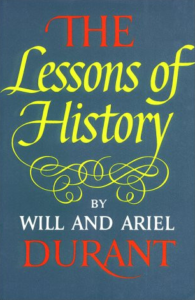After the monsoon ends, dragonflies abound in the sky. In the modest front yard, enduring winter and soaking up the vitality of spring and the summer sun, a variety of plants have flourished. The small flower bed, distinct from the lawn, starts to showcase various flowers, evidencing the efforts put in over time. The yard, bathed in morning sunlight, is filled with peace.
However, upon closer inspection, this small yard is a microcosm teeming with the diversity of life. From the small grasses of childhood memories in the countryside to the tiny beings that inhabit them—grass bugs, ants, bees—all are bustling, each establishing their own space for life. It’s astonishing how such a small space can host so many plants and insects, all bustling for survival and reproduction, a silent struggle for life amidst peace.
Opening the first page of history reveals humanity bustling to build brilliant civilizations. However, subsequent history is marred by continuous wars. American philosopher Will Durant notes in his book The Lessons of History that “out of the recorded 3,421 years of history, only 268 years saw no war.” Humanity has been in a cycle of fighting for 100 days and resting for eight.

War represents the worst form of competition, often rationalized with various justifications but essentially starting from the most irrational choice of wanting more than others. This does not mean that the natural state is a “war of all against all,” as described by the English philosopher Thomas Hobbes in the 1600s.
Animals utilize both cooperation and competition as survival strategies. Humans, being more intelligent, have discovered that even within competition, choosing cooperation can yield more resources. Thus, through cooperation and division of labor, humanity has driven agricultural and industrial revolutions, creating wealth. Today, we stand amidst an information revolution, creating immense intellectual assets through the internet.
In today’s life, no one creates value alone, including great political leaders and entrepreneurs who have achieved remarkable growth. As the world becomes more complex, the narrative of a ‘lone hero’ is but a myth. Yet, the human desire for more and the finite nature of resources make competition inevitable. Paradoxically, such competition can give birth to better technology and ways of living.
Where there are interactions, there is always competition and cooperation. The bad news is that as more people gather, resources become scarcer. The good news is that cooperation can create more resources. Moreover, the valuable resources today are not material but intellectual and spiritual.
Without interaction, there is neither competition nor progress, nor might there be happiness. Through these connections, we evolve. Whether competing or cooperating, without interaction, personal growth and the creation of desired values are impossible. Interaction brings both blessings and growth. Of course, we cannot ignore those who are never satisfied with what they justly earn, covetously eyeing others’ possessions, including those who, possessing selfish genes, foolishly rob others of their benefits while failing to secure their own. Among them are those far more aggressive than us.
Let’s take a moment to immerse ourselves in the competition and cooperation that maximizes our competitiveness through interaction. Let’s explore the sayings left by our ancestors, based on academically formulated theories and practical experience, feeling it’s too valuable to keep to ourselves. Ultimately, the answer to competition in our given circumstances is something we must find for ourselves.

답글 남기기